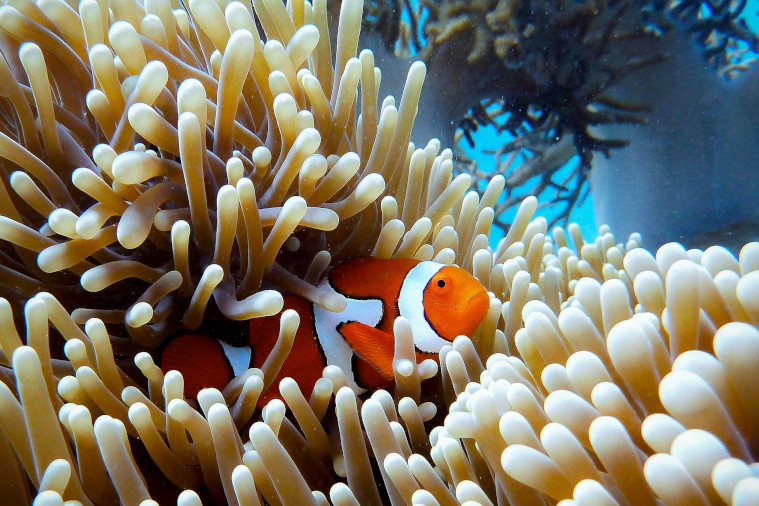The Great Barrier Reef's Decline: A Stark Warning of Global Warming's Impact
By Mira Fischer | 05-16-24

The Great Barrier Reef, a natural wonder of the world and a UNESCO World Heritage site, is facing an unprecedented crisis. Its vibrant corals, teeming with marine life, are succumbing to the devastating effects of global warming at an alarming rate. Scientists and environmentalists warn that the reef's decline serves as a stark barometer, highlighting the urgent need for climate action.
Coral bleaching, a phenomenon caused by rising ocean temperatures, has become increasingly frequent and severe in recent years. When corals experience heat stress, they expel the symbiotic algae living within their tissues, causing them to turn white. While bleached corals are not immediately dead, they become vulnerable to disease and starvation. Repeated bleaching events have left vast swathes of the Great Barrier Reef damaged and struggling to recover.
Ocean acidification, another consequence of increased carbon dioxide levels in the atmosphere, further exacerbates the reef's plight. As the ocean absorbs excess carbon dioxide, it becomes more acidic, hindering the ability of corals and other marine organisms to build and maintain their calcium carbonate skeletons. This weakens their structures, making them more susceptible to damage and erosion.
The consequences of the reef's degradation extend far beyond its ecological significance. The Great Barrier Reef supports a vast array of marine life, including thousands of fish species, turtles, sharks, and other creatures. Its intricate ecosystems provide essential habitats, breeding grounds, and food sources for countless organisms. The loss of the reef would disrupt these delicate relationships and have cascading effects throughout the marine food web.
The economic repercussions of the reef's decline are also substantial. The Great Barrier Reef generates billions of dollars in revenue annually through tourism and fishing. Its vibrant coral gardens attract millions of visitors from around the world, contributing to local economies and supporting livelihoods. The fishing industry relies on the reef's rich biodiversity to sustain commercial and recreational fishing activities. The degradation of the reef threatens these industries, jeopardizing jobs and economic stability in the region.
The Great Barrier Reef's plight serves as a microcosm of the global climate crisis. The interconnectedness of ecosystems and the far-reaching consequences of human-induced climate change are evident in the reef's struggle for survival. It is a stark reminder that urgent action is required to mitigate greenhouse gas emissions and transition towards a sustainable future.
Efforts are underway to protect and restore the Great Barrier Reef. Scientists are developing innovative techniques to enhance coral resilience and promote reef recovery. Conservation organizations are working to reduce pollution, manage fishing practices sustainably, and raise awareness about the reef's vulnerability. However, these efforts alone are not enough.
Addressing the root cause of the problem, climate change, requires a global commitment to reducing greenhouse gas emissions. The international community must work together to implement ambitious climate policies, transition to renewable energy sources, and adopt sustainable practices across all sectors.
The fate of the Great Barrier Reef hangs in the balance. Its decline serves as a powerful symbol of the urgent need to address climate change. By recognizing the reef's vulnerability and taking decisive action, we can protect this natural wonder and safeguard the future of our planet.